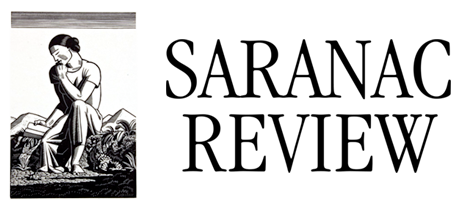The Novelty of Novels: My Journey with Reading as an English Major
My relationship with reading has been somewhat tumultuous. I’ve gone back and forth and back again from ardent love to bitter indifference to burning hatred, but I always end up with a book back in my hands. In elementary school, I was in the slow readers group —they called it the “blue group,” but even a fourth grader could tell that was just code for a step away from illiteracy. I remember looking at the children plodding their way through The Big Friendly Giant on the carpet around me and, in typical Leo fashion, thinking, “What am I doing here? I’m better than this, right?”
My uncle is a teacher and fellow lover of literature. He and I used to swap opinions on books we had read, give each other recommendations, and sometimes he would even gift me a book to read (Demon Dentist was my favorite). But he lived too far away and eventually our conversations hollowed out; an exchange rarely pushing beyond “how’s school?” Without someone to discuss my books with I began to withdraw from reading again, and I didn’t get back into it until high school. My freshman year English teacher and I were constantly at odds. I never did my work, and she was always chasing me down for it. Once, I scribbled “I hate this class” on a paper I didn’t realize was being collected, and she was less than impressed. I just didn’t find our readings interesting. I already knew what happens to Romeo and Juliet, so what was the point in giving myself a headache over Shakespeare’s ridiculous syntax? Oh, how things have changed.
By my sophomore year I had grown more fond of reading. The summer before, I had gone to the public library after work nearly every day to wait for my mom to pick me up. I suffered through The Catcher in the Rye just because I could (I hated Holden Caulfield then, but with the gift of hindsight I’ve realized that was because I saw the worst of myself in him), and decided to stick to the YA section after that. Funnily enough, Animal Farm, a novel famous for its grotesque imagery, was what sparked my reading redemption arc. I was enamored with the themes and allegory, I loved the blatant critique of power corrupted. When we read The Crucible in my junior year, I was completely taken with the representation of Puritan New England—my fondness for which has only grown since. My junior year, we read The Great Gatsby. Daisy’s line, “I hope she’ll be a fool—that’s the best thing a girl can be in this world, a beautiful little fool,” still rings in my ears. Did you know that F. Scott Fitzgerald didn’t even come up with that line himself? After his wife gave birth to their daughter she said, “I hope she’s beautiful and a fool—a beautiful little fool.” This fact turned an already devastating line into one that has been tattooed onto my brain in melancholic script. What can I say? I am but a sucker for narratives of poetic sadness.
By the second semester of my senior year, I was on the cusp of falling back into my old habits. I would read books that were assigned to me, but nothing else. All I needed was a push in the right direction. In the fall of that year, I read The Perks of Being a Wallflower—the narrative of poetic sadness to end all others. Something about Charlie’s profound and unexplainable sadness spoke to me; it was as if Charlie was a real person telling me personally about his struggles. In March of 2020, I was presented with a push. I watched as the rest of my high school experience, arguably the best part, was whisked away by the hand of COVID-19. No senior prom, no senior skip day, no senior prank, my belated graduation only a sad shell of what it was supposed to be. With nothing better to do, I turned to my bookshelf once more, and thus began a love affair stronger than anything Shakespeare could come up with was born. By the summer of 2020 I was blowing through books in a couple days. When I found out I would be spending my freshman year of college on my bedroom floor I once more turned to my bookshelf, the only friend that couldn’t leave.
My relationship with reading has only grown stronger, and now includes poetry— something high school me would not believe if you told her. I’ve come to think of reading as a way to become someone else, and live a different life for a little while. When I’m feeling lonely, I turn to Addie LaRue to show me the deep blues of true loneliness. When I’m feeling inexplicably sad, I ask Charlie Kelmeckis to tell me how he survived every bump in the road. When I’m feeling mistreated, I sit with Marianne Sheridan in a comforting and understanding silence. I can’t speak for future me, but I am quite confident that I’ve found a life-long companion in reading. Thank god for my 4th grade ego.

